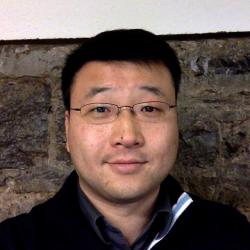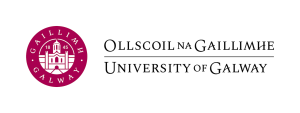
Simon Wong, Ph.D.
He joined ICHEC as a computational scientist in March 2008 and is primarily involved in supporting the bioinformatics/life sciences community. He is active in introducing researchers to ICHEC resources and ways to gain access. For ongoing projects he provides consultation and hands-on assistance for setting up bioinformatics analyses and workflows, which employ a wide range of software packages on ICHEC systems. Simon also collaborates with scientists on various research projects, e.g. microRNA target prediction. One of his main research interest lies in tackling computational challenges posed by high-throughput DNA sequencing technology, where he has been actively involved in nematode transcriptome analyses and has supported users in carrying out metagenomic studies. Simon also leads an ongoing collaboration with clinical researchers at the RCSI and DCU in developing novel diagnostics technology in the field of cardiovascular disease.
Apart from scientific and user support roles, Simon manages ICHEC's Education, Training and Outreach programme, which includes provision of training courses and workshops for academia and industry, accredited graduate teaching and student mentorships. At a European level, he leads a number of training activities in a series of PRACE implementation phase projects (funded by FP7 and H2020), including the establishment and coordination of the PRACE Advanced Training Centres (PATCs) and the establishment of ICHEC as a PRACE Training Centre (PTC) in 2017.
Simon holds an undergraduate degree in Human Genetics from Trinity College Dublin, where he also completed his Ph.D. in Prof. Ken Wolfe's lab at the Genetics Department. His Ph.D. work covered a range of topics including whole genome duplication, evolution of yeast mating types and selection for a specific gene cluster in anaerobic yeast species. He then held a postdoctoral position in Prof. Mark Ragan's lab at The University of Queensland in Brisbane, Australia, where he developed a method to classify protein subsequence families and was involved with projects dealing with large-scale protein-protein interaction and subcellular localisation datasets.
|
Publications |
|
Schiffer P.H., Danchin E.G.J., Burnell A.M., Creevey C.J., Wong, S., Dix I., O’Mahony G., Culleton B.A., Rancurel C., Stier G., Martínez-Salazar E.A., Marconi A., Trivedi U., Kroiher M., Thomas M.A.S., Schierenberg E., Wiehe T. and Blaxter M. (2019) Signatures of the Evolution of Parthenogenesis and Cryptobiosis in the Genomes of Panagrolaimid Nematodes. iScience 21:587-602. |
|
McDermott N., Meunier A., Wong S., Buchete V. and Marignol L. (2017) Profiling of a panel of radioresistant prostate cancer cells identifies deregulation of key miRNAs. Clinical and Translational Radiation Oncology 2:63-68. |
|
Ralph A., Somers M., Cowman J., Voisin B., Hogan E., Dunne H., Dunne E., Byrne B., Kent N., Ricco A., Kenny D. and Wong S. (2016) Computational Tracking of Shear-Mediated Platelet Interactions with von Willebrand Factor. Cardiovascular Engineering and Technology 7:389-405. |
|
Perry A., O'Hurley G., Raheem O.A., Brennan K., Wong S., O'Grady A., Kennedy A.-M., Marignol L., Murphy T.M., Sullivan L., Barrett C., Loftus B., Thornhill J., Hewitt S.M., Lawler M., Kay E., Lynch T. and Hollywood D. (2013) Gene expression and epigenetic discovery screen reveal methylation of SFRP2 in prostate cancer. International Journal of Cancer 132:1771-1780. |
|
Tyson T., O'Mahony Zamora G., Wong S., Skelton M., Daly B., Jones J.T., Mulvihill E.D., Elsworth B., Phillips M., Blaxter M. and Burnell A.M. (2012) A molecular analysis of desiccation tolerance mechanisms in the anhydrobiotic nematode Panagrolaimus superbus using expressed sequenced tags. BMC Research Notes 5:68. |
|
Bustamam A., Sehgal M.S., Hamilton N.A., Wong S., Ragan M.A. and Burrage K. (2009) An efficient parallel implementation of Markov clustering algorithm for large-scale protein-protein interaction networks that uses MPI. In Proceedings of the 5th IMT-GT international conference on mathematics, statistics and their applications 2009 (ICMSA 2009), Bukittinggi, Indonesia, pp. 94-101. |
|
Shin C.J., Wong S., Davis M.J. and Ragan M.A. (2009) Protein-protein interaction as a predictor of subcellular location. BMC Systems Biology 3:28. |
|
Wong S. and Ragan M.A. (2008) MACHOS: Markov clusters of homologous subsequences. Bioinformatics 24:i77-85. |
|
Scannell D.R., Byrne K.P., Gordon J.L., Wong S. and Wolfe K.H. (2006) Multiple rounds of speciation associated with reciprocal gene loss in polyploid yeasts. Nature 440:341-345. |
|
Wong S. and Wolfe, K.H. (2006). Duplication of genes and genomes in yeasts. In Comparative genomics (Sunnerhagen P. and Piskur J., eds.), Vol. 15, pp. 78-99. Springer-Verlag, Heidelberg. |
|
Wong S. and Wolfe K.H. (2005) Birth of a metabolic gene cluster in yeast by adaptive gene relocation. Nature Genetics 37:777-782. |
|
Logue M.E., Wong S., Wolfe K.H. and Butler G. (2005) A genome sequence survey shows that the pathogenic yeast Candida parapsilosis has a defective MTLa1 allele at its mating type locus. Eukaryotic Cell 4:1009-1017. |
|
Wong S., Fares M.A., Zimmermann W., Butler G. and Wolfe K.H. (2003) Evidence from comparative genomics for a complete sexual cycle in the 'asexual' pathogenic yeast Candida glabrata. Genome Biology 4:R10. |
|
Wong S., Butler G. and Wolfe K.H. (2002) Gene order evolution and paleopolyploidy in hemiascomycete yeasts. Proceedings of the National Academy of Sciences, USA 99:9272-9277. |



